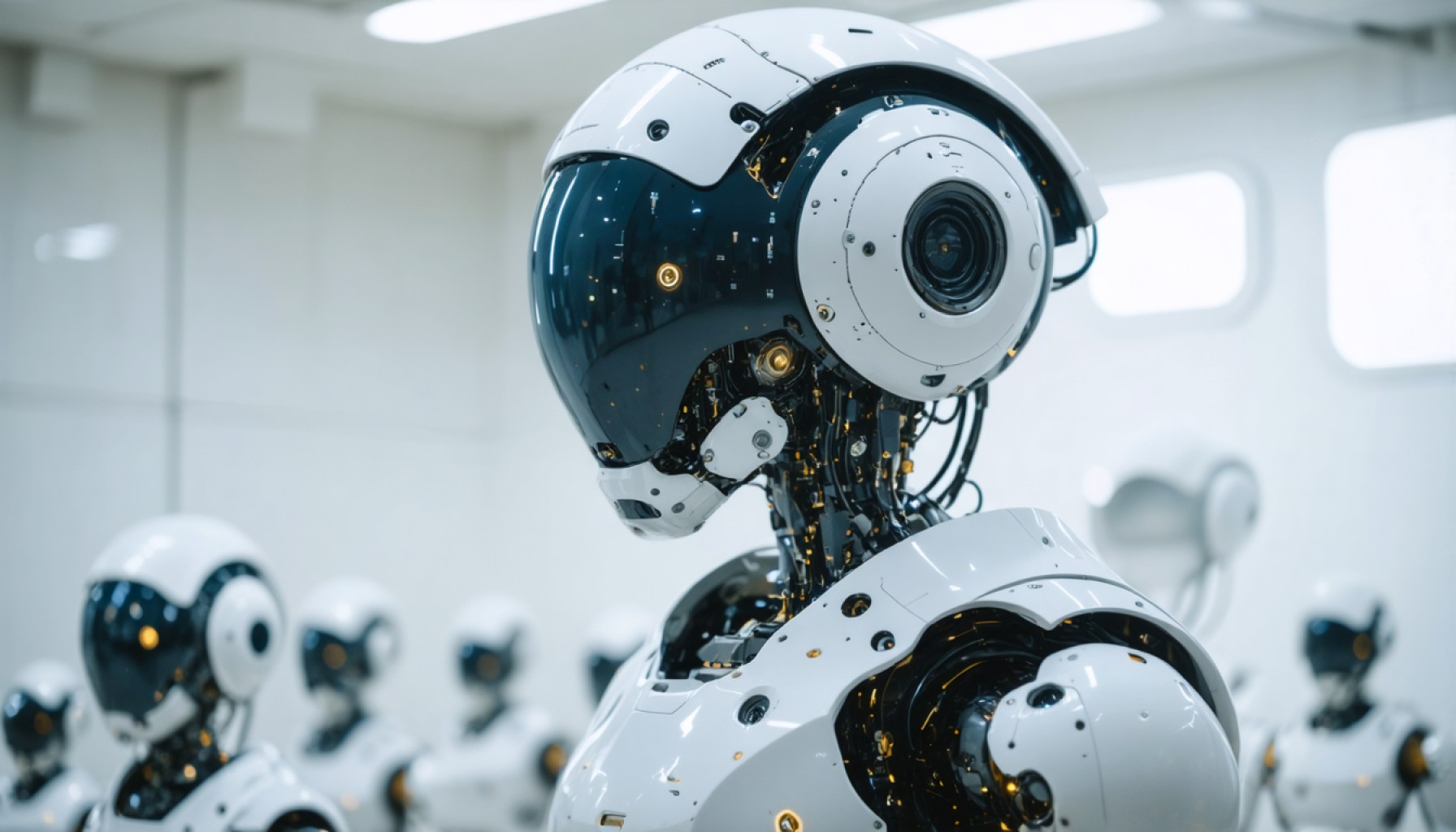- The increasing automation of life by artificial intelligence (AI) raises questions about the balance between convenience and human experience.
- John Gray’s philosophical insights highlight the dual nature of humans and the impact of technology on traditionally human tasks.
- AI advancements bring undeniable benefits, such as in dentistry, but challenge the essence of creativity and personal connection.
- Outsourcing creativity to algorithms risks losing the soul in art and the joy of the creative process.
- AI should enhance human life without eroding the value found in discovery, human interaction, and imperfect beauty.
- The debate urges us to reconsider the extent of AI’s role in our lives and to prioritize experiences simply lived over technological efficiency.
In an era where technology promises convenience at every corner, the debate over how much of our lives we should automate is becoming increasingly vital. Imagine a world where artificial intelligence wraps up the essence of our friendships into mere bullet points or distills years of human wisdom into a terse sentence. This vision, while tantalizing in its simplicity, hides a more troubling proposition: at what cost do we purchase efficiency?
John Gray, a noted philosopher, once painted humans as both a blessing and a curse to the biosphere. His paradoxical view seems increasingly relevant as we delegate more and more of our uniquely human tasks to machines. Dentistry, he argues, has unmistakably benefited from technological advancements. But should every part of our lives be just as simplified?
Consider the thought: watching vibrant birds soar across the digital world or feeling the subtle nudge of a phone reminding us to seize the day. These are small, delightful reminders that our devices can enhance our lives without overwhelming them. Yet, there’s a fine line; a computer may effortlessly compute sums, yet what happens when it begins to draft our personal stories or craft our artistic ambitions?
The heart of the matter is the essence of creativity and connection. Would a painting retain its soul if birthed by an algorithm? Isn’t it in the paint’s mess and in the writer’s struggle that art truly lives? Outsource creativity, and we risk becoming mere producers, stripped bare of the joy found in creation.
As we march toward an AI-driven horizon, we must question what truly enriches our lives. If AI robs us of the joy of discovery, the warmth of words exchanged between loved ones, or the delight in seeing a photograph that’s imperfectly perfect, what remains?
The convenience AI promises must be weighed against the possibility of an existence devoid of its most human elements. Our timesaving innovations should ask, not what we can do for machines, but what a life simply lived can offer us. Let’s not let machines live our lives, while we merely observe from the sidelines.
How Much Should We Automate in Our Lives? The Hidden Implications of AI Advancements
Exploring the AI Revolution: A Double-Edged Sword
As we dive deeper into a tech-centric era, artificial intelligence (AI) promises both remarkable conveniences and daunting implications. The core question is how much automation we should embrace without sacrificing the essence of our humanity.
AI in Creative Fields: A Soulful Debate
AI’s encroachment into creative fields stirs significant debate. While AI can assist artists and writers by generating outlines or offering stylistic suggestions, the precedence of human emotions and the raw messiness of creative processes remain unparalleled. A painting or novel crafted by an algorithm may lack the imperfections and struggles that imbue art with soul.
How Can AI Enhance Rather than Replace Human Creativity?
1. AI as a Tool, Not a Creator: Utilize AI applications for brainstorming ideas or overcoming creative blocks, but retain full creative control throughout the process.
2. Augmenting Routine Tasks: Deploy AI to handle menial tasks like proofreading or formatting, thus freeing up more time for imaginative endeavors.
3. Collaborative Projects: Leverage AI for collaboration, such as developing music or art pieces that require computational inputs while incorporating human creativity.
The Impact of AI on Personal Connections
AI technology, with capabilities to summarize conversations or draft personalized messages, might dilute genuine human interactions. Relationships risk becoming reduced to data points unless we uphold authentic communication.
Real-World Use Cases of AI-Enhanced Relationships
1. AI-Assisted Social Reminders: Use AI-driven calendars and reminders to manage appointments and birthdays, ensuring you invest your time in meaningful interpersonal engagements.
2. Smart Communication Apps: Opt for apps that promote authentic expressions and exchange casual, heartfelt conversations instead of algorithm-generated responses.
AI in Dentistry: Where Automation Shines
Highlighted in the source article, dentistry represents a domain where AI and automation already contribute significantly. From precision robot-assisted surgeries to AI-augmented diagnostics, technology enhances patient care and procedural efficiency.
Market Forecast & Industry Trends
By 2030, the global AI market is projected to exceed $800 billion. Areas such as healthcare, automotive, and creative industries stand out for rapid AI integration. Yet, with this growth comes the demand for ethical frameworks ensuring AI enhances rather than diminishes human roles.
Actionable Recommendations for Balancing AI and Human Elements
– Set Boundaries: Establish clear lines where you’re comfortable integrating AI. Assign tech to optimize mundane tasks, preserving personal effort for meaningful activities.
– Focus on Skill Development: Embrace lifelong learning to adapt to AI emergence, centering on skills that emphasize creativity, critical analysis, and emotional intelligence.
– Promote Tech Literacy: Stay informed of AI capabilities and limitations, allowing more informed decisions about its reach in your life.
Conclusion: Weighing Automation Against Human Experience
The path forward demands a nuanced perspective. AI should serve as a catalyst for enhancing our quality of life, not a replacement for the intricate human experience. As we embrace technology, a conscious commitment to maintaining creativity, connection, and discovery enriches both our lives and the world we inhabit.
For more insights into ethical AI use and emerging tech trends, explore MIT’s innovative technology platforms and Smithsonian’s cultural insights.
